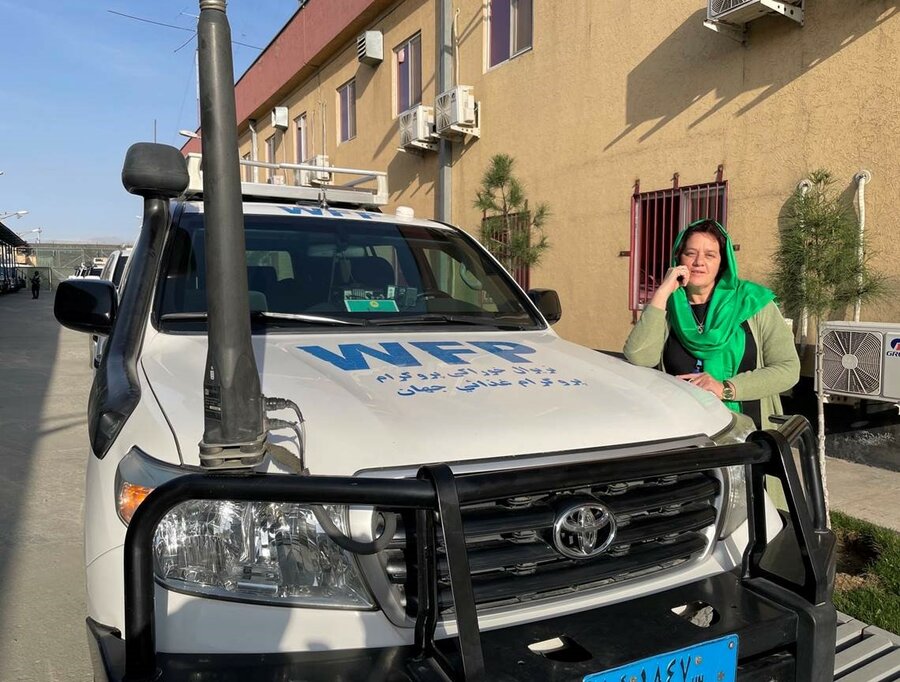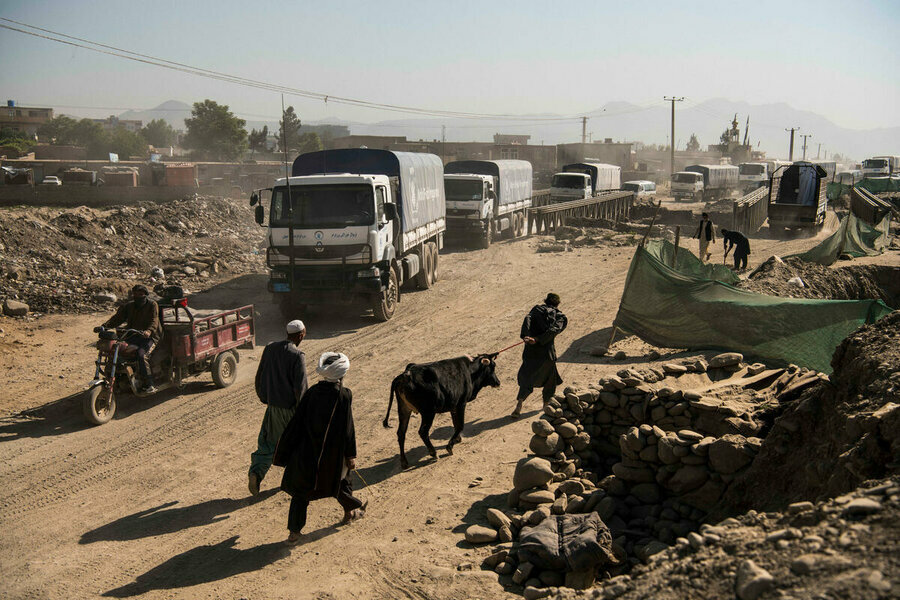For the sake of every Afghan we now hope for a peaceful transition
As another dawn breaks on the barren, dusty mountain ranges that surround Kabul, my mind is at work already. The events of the past few days, since the Taliban took over the capital, replay in my head - the gunshots, the anxiety of our Afghan colleagues. These are scary, unpredictable times.
We knew things were going to change with the withdrawal of foreign troops, but the pace at which everything happened took us all by surprise. We have operated in Taliban-held areas for many years, and the Taliban has given assurances that the World Food Programme will be allowed to continue its work. But there are still a lot of unknowns.
What troubles me the most is the thought of the millions of people across Afghanistan who depend on our assistance. Decades of conflict, severe consecutive droughts caused by climate change and, most recently, the COVID-19 pandemic have pushed this beautiful, tormented country to the edge of a humanitarian catastrophe. As we head into another harsh Afghan winter, one out of three people already struggle to put food on the table. Two million children are undernourished. Uncertainty casts a long shadow on our ability to continue our life-saving work.

And then there are our Afghan colleagues. A 450-strong team of men and women - leaders in their community, working with WFP in service to their fellow citizens. I cannot admire them more as even under this duress, our national staff continue to turn up to work, and - as it’s safe to do so - ensure the continued delivery of food to those who need it most.
For the sake of every Afghan girl and boy, woman and man, we now hope for a peaceful transition. This country has been suffering far too long. We need the World Food Programme and other humanitarian agencies to continue their vital work, to reach those who are most in need - families displaced by conflict, farmers who lost their crops, people whose jobs were swept away by the economic fallout of the COVID-19 pandemic.
These people - securing they have enough to eat in the present and a better future to look forward to - are the very reason why we have been in Afghanistan for the past six decades, and plan to keep standing with our Afghan friends. We never take sides, we steer clear of political, economic or military considerations, we just provide support to those who need it, wherever they may be. In the first six months of 2021, we delivered food and nutrition assistance to 5.5 million people, including people who fled their homes during the recent fighting. As they started to pour into Kabul from other provinces early this month, we began sending mobile teams across the city to assist them.

The past days have been heavy with worry, but I know that our humanitarian work must continue. And I hope the international community will step up its support to the humanitarian response. WFP needs US$200 million urgently - our food is due to run out in October, exactly the same time whatever food left over from the last harvest begins to dwindle, and the winter begins to set in.
Irish writer Dervla Murphy once wrote of Herat, though I feel is emblematic of the country as a whole: “[Afghanistan] is as old as history and as moving as a great epic poem.” The people of Afghanistan have a continuity that precedes war - and so they will continue through this period too. But to do so, they need us to stand with them. Perhaps more than ever.
* This article was originally published in the Irish Times on 19 August 2021



